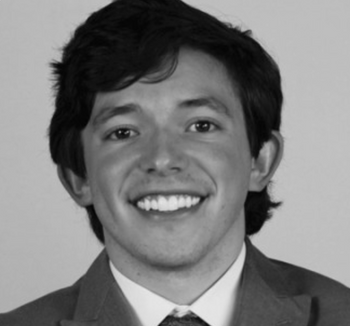Wash. State prof excoriates Gonzaga U. for rejecting Ben Shapiro speech
A professor from nearby Washington State University doesn't seem to think that's the right move.
Gonzaga University recently denied Ben Shapiro's request to speak at the school.
A Washington State University professor challenged university standards for free speech and expression after Gonzaga University denied conservative author Ben Shapiro a platform to speak there.
WSU government professor Cornell Clayton discussed how schools should handle controversial speakers in an op-ed for the Spokesman-Review: “We should never prevent expression simply because we believe certain ideas are wrong, offensive, or heretical. Nor should protesters or hecklers be allowed to prevent speakers on campus.”
Gonzaga recently denied Shapiro because his “appearances routinely draw protests that include extremely divisive and hateful speech and behavior, which is offensive to many people.” Shapiro subsequently denied their rejection and says he will speak anyway.
[RELATED: Gonzaga denies Ben Shapiro speaking request. Shapiro denies their rejection.]
While Clayton wrote that he believes conservative commentators like Shapiro, Ann Coulter, Tomi Lahren, Milo Yiannopoulos, and others are more interested in provocation than debate, he noted that colleges and universities must defend free speech regardless of security concerns or offended students. Otherwise, these institutions risk “undermining the very mission of the university.”
Clayton also called upon private colleges and universities to defend free speech and expression, even though they are not required to do so under the First Amendment.
“[A]ll universities, public and private, should recognize that suppressing ideas runs contrary to their core mission of promoting inquiry, discovery and the dissemination of knowledge,” Clayton wrote. He also added that history “is littered with individuals...who risked lives and careers to promote ideas considered absurd or heretical at the time but which later turned out to be true.”
The professor argued that ideas worth censoring are nearly impossible to define and that universities should “make students safe for ideas, not ideas safe for students.”
According to Clayton, higher education institutions can still defend free expression while making clear that such allowance for free expression does not constitute an endorsement of the message. Colleges can allow these speakers to come to campus, but “should not support, financially or otherwise, speakers who seek to insult or offend rather than inform and educate. Campus leaders should speak out against hateful speech on and off campus...”
[RELATED: WSU stocks men’s bathrooms with FREE menstrual products]
Clayton also alluded to the marketplace of ideas theory.
“The way to defeat bad ideas is to engage them and counter them with better ones,” Clayton claimed. “We should help student groups to understand the difference between free speech and effective speech...success is more likely to come through thoughtful and respectful dialogue than through offensive stunts and divisive rhetoric.”
Follow the author of this article on Twitter: @eduneret

